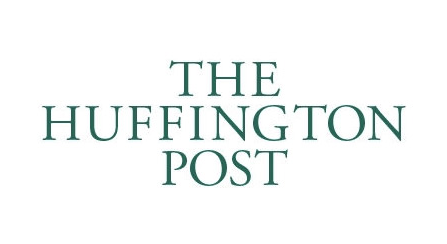
Originally posted by Terry O’Neill to The Huffington Post on April 8, 2014
April 8 is Equal Pay Day, marking the number of extra days into 2014 the average woman has to work to earn as much as her male counterpart did in 2013.
No one who cares about economic justice and the rights of women is celebrating this occasion. Although, of course, over at Fox News, according to Media Matters:
Fox News contributor Erick Erickson argued that the increase in female breadwinners defies natural order because “the male typically is the dominant role” in “the natural world.” He added that these changes showed that “we as people in a smart society have lost the ability to have complimentary relationships in nuclear families, and it’s tearing us apart.”
Meanwhile, back in the real world – for full-time, year-round workers, women are paid on average only 77 percent of what men are paid; for women of color, the gap is significantly wider. African American women on average earn only 64 cents and Latinas on average earn only 55 cents for every dollar earned by white, non-Hispanic men.
In 1963, when the Equal Pay Act was passed, full-time working women were paid 59 cents on average for every dollar paid to men. This means it took 45 years for the wage gap to close just 18 cents – a rate of less than half a penny a year. This narrowing of the gap has slowed substantially since the turn of the century.
In fact, according to the Institute for Women’s Policy Research, at the current pace the wage gap won’t be closed until the year 2058! That’s a lot more Equal Pay Days than I care to observe.
We need a plan to erase Equal Pay Day from the calendar. A good place to start is the Women’s Economic Agenda that was put forward by House Majority Leader Nancy Pelosi and House Democrats. This package of legislation would raise wages for women and their families, and allow working parents to support and care for their families.
In addition, today President Obama welcomed Lilly Ledbetter back to the White House as he signed two executive actions on equal pay, and the U.S. Senate is expected to vote this week on the Paycheck Fairness Act, designed to help eliminate pay disparities between men and women.
Sign a petition here to tell Congress to pass the Paycheck Fairness Act.
The gender wage gap not only affects women’s spending power, it also penalizes their retirement security by creating gaps in Social Security and pensions. As I’ve written here before, Social Security is a vitally important women’s issue, because we live longer than men and typically retire with less savings than men. But Social Security benefits (and pension benefits, for those fortunate enough to have pensions) are based on a worker’s average lifetime earnings – so the disparity in women’s pay shows up to make their retirement income that much less, to boot.
The Paycheck Fairness Act would help end straight-up pay discrimination against women. But women’s pay disparity is also partly due to more subtle disadvantages women face. Far more women than men for example, have to work reduced hours or drop out of the paid workforce altogether to care for children or ill or disabled family members. The immediate sacrifice in wages is obvious, but less obvious is the longer-term earnings hit women take: it’s more difficult to move back to the paid workforce or up the job ladder.
The frustrating reality is that employers won’t create family friendly environments unless and until the law requires it. We need a holistic approach like the Women’s Economic Agenda: paid family leave, paid sick days, high quality affordable child care, in addition to equal pay for work of equal value. We also need to strengthen and expand Social Security, in particular by providing caregiver credits so that women (and men) are not penalized in retirement for providing unpaid care to family members during their working lives. Does anyone really think that devoting your full-time attention and effort to caring for a loved one is somehow not valuable work?
And of course, we must raise the minimum wage, including the minimum wage for tipped workers. The minimum wage is a women’s issue; nearly two-thirds of minimum wage workers are women. Yet the minimum wage has not kept up with inflation over the last 45 years - with the minimum wage now, in inflation-adjusted terms, more than 30 percent lower than it was in 1968.
Just think: If equal pay for women were instituted immediately, across the board, it would result in an annual $447.6 billion gain nationally for women and their families. Over fifteen years, a typical woman loses $499,101 because she is paid less than a man. Find out how much less a woman earns than a man in your state.
I’ll be glad when we no longer have to observe Equal Pay Day, but until then, we need to educate ourselves about the wage gap between women and men, organize our friends and communities to press Congress for meaningful solutions, and vote out of office the inequality deniers who think income inequality is a “myth.” We know it’s all too real.
What are some examples of income inequality you’ve seen in your own life?